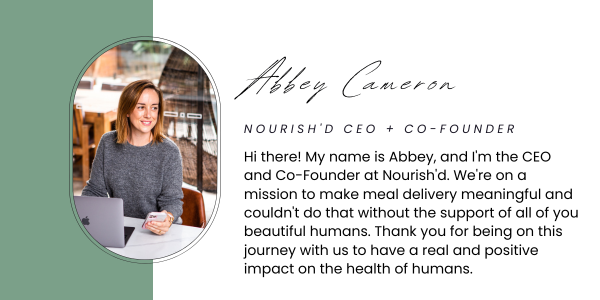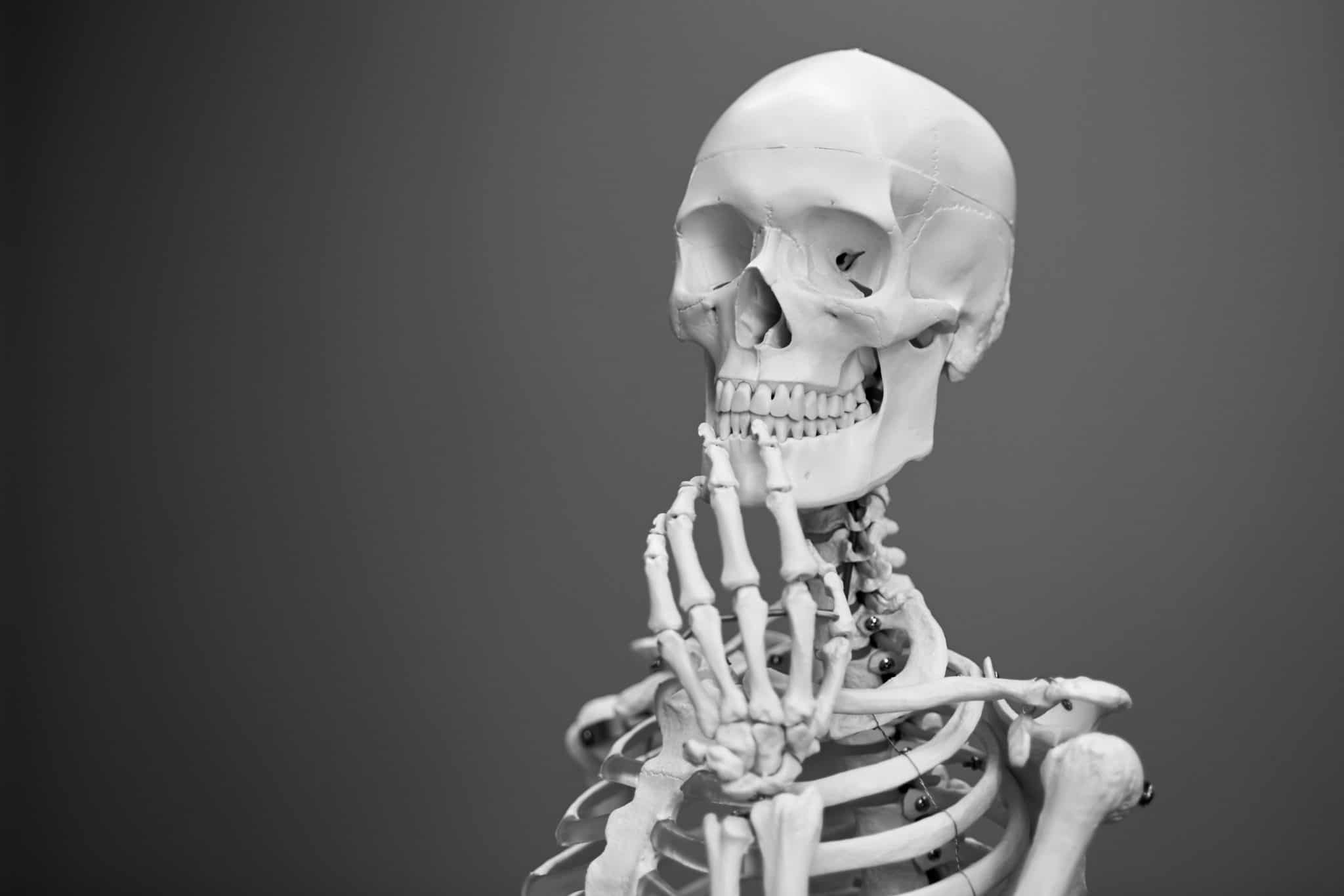Be the best skeleton you can be this Halloween
When we think of our health we think of our muscles, our organs, our skin, our brains. Well, this Halloween, we’re bringing our skeletons to the limelight to improve your bone health.
Fun fact: our skeletons completely regenerate - or remodel - themselves every 10 years.
How cool is that?! It’s like our bones renovate every decade to keep up with the times. With that in mind, it’s important to consider how our diet contributes to these reno’s - are we making home improvements or is it another fleeting popcorn ceiling trend…? If you’ve got popcorn ceilings and still love ‘em, we love that for you. We just want your bones to be strong and healthy for the long run. Here’s what you should be eating to make sure your skeleton stays strong for all your future renovations and remodels.
Protein
Protein makes up about 50% of the volume of bone and about 25% of the mass. Protein is important to everyone’s diet and the recommended daily intake is easily attainable even on a plant-based diet. The RDI will vary depending on your age, weight, and activity levels, but a good guide is to consume roughly 0.8-1.2g of protein per day per kilo of body weight. Goodsources of protein include meat, fish, eggs, beans, whole grains, nuts, seeds, and soy products. If you’re looking for high protein Nourish’d meals, this week’s Chilli Con Carne is a great healthy option (a whopping 38.7g for a Standard size) if you’re veggo, the Nasi Goreng (14.8g for a Standard size) is a perfect source of quality protein and deliciousness!
Calcium
Calcium is a mineral that is crucial for bone health. 99% of our body’s calcium is found and stored in the bones. In fact, if you aren’t taking in enough calcium from your diet, our bodies draw calcium from our bones like a reserve bank. While this is super cool, if the calcium withdrawal outweighs the calcium deposit to the bones, it has significant impacts on bone density and overall bone health. This is where conditions like osteoporosis can develop. Good sources of calcium include dairy products, canned salmon and sardines (the little edible bones are full of calcium), soy products, dark green vegetables, and chickpeas. See the Osteoporosis Australia website here for the recommended daily intakes (RDIs).
Vitamin D and Vitamin C
Vitamin D provides two main benefits for bone health - it helps us absorb calcium from the food we eat and facilitates proper regeneration and mineralisation of our bones. Our bodies make Vitamin D when our skin is exposed to the sun (read our article about sunlight and its benefits for your body here), and it is also found in foods such as swordfish, salmon, sardines, and egg yolks. Vitamin C is also crucial because it helps our bodies make collagen, which is a protein that makes up most of our connective tissue, including hair, skin, muscle, and - you guessed it - bone. You can find Vitamin C in foods like citrus, strawberries, tomatoes, capsicum, and green vegetables. Another great source is fresh juice - our In Full Swing Cold Pressed Juice is AMAZING for your daily dose of vitamin C, check it out in the snack section here! These additions to your diet will do your skeleton wonders and improve your bone health for years to come. For more information, check out the resources below!
Resources - For More Information:
- https://www.webmd.com/osteoporosis/osteo-fracture-diet#1
- https://mommypotamus.com/foods-supplements-for-bone-healing/
- https://www.ncbi.nlm.nih.gov/pmc/articles/PMC5804294/
- https://www.algaecal.com/osteoporosis-treatment/bone-healing/
- https://www.osteoporosis.org.au/sites/default/files/files/ThematicReportSmaller.pdf
- https://orthoinfo.aaos.org/en/staying-healthy/bone-health-basics/#:~:text=Bone%20Remodeling,itself%20about%20every%2010%20years
- https://www.osteoporosis.org.au/calcium
- https://www.nhs.uk/conditions/vitamins-and-minerals/calcium/



